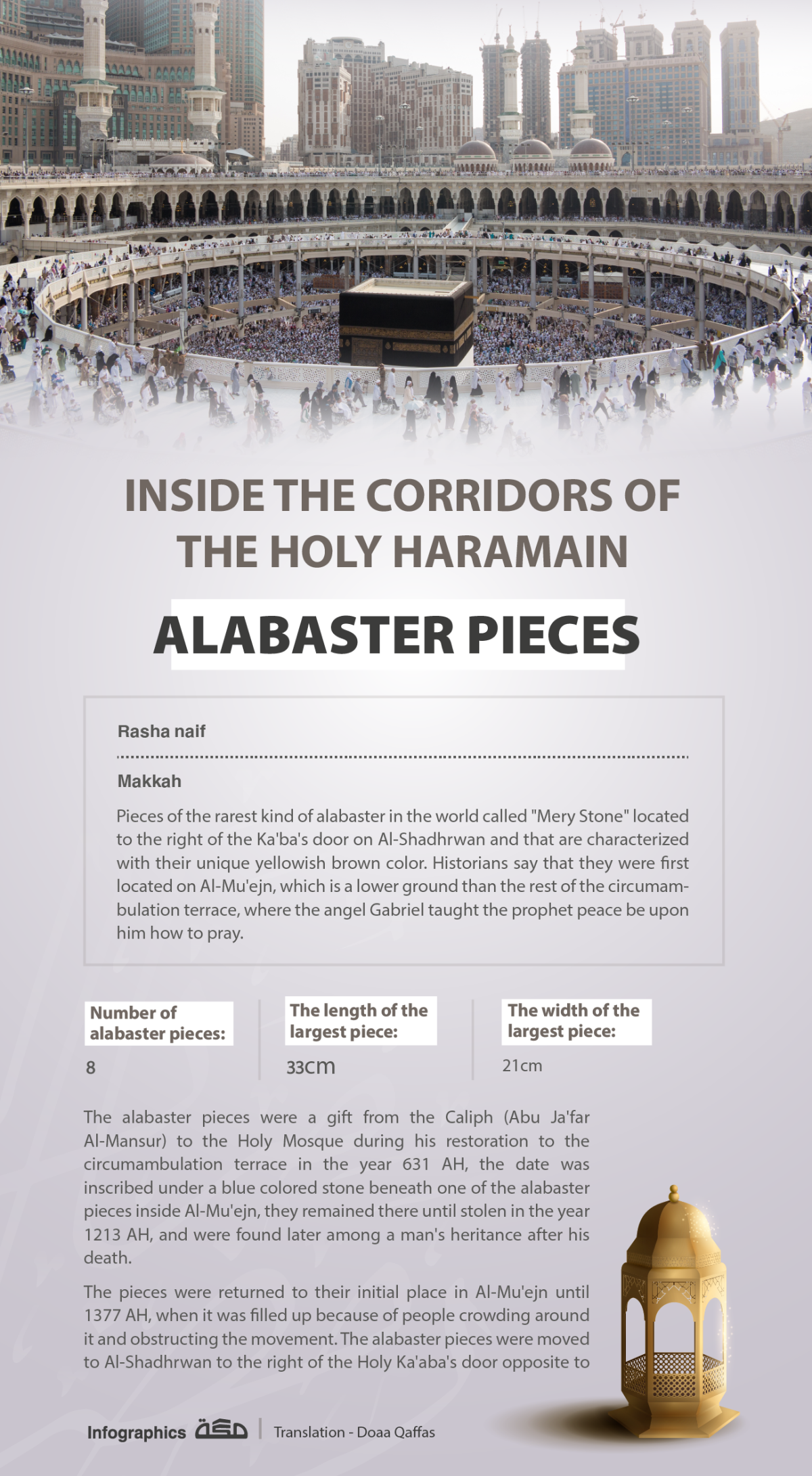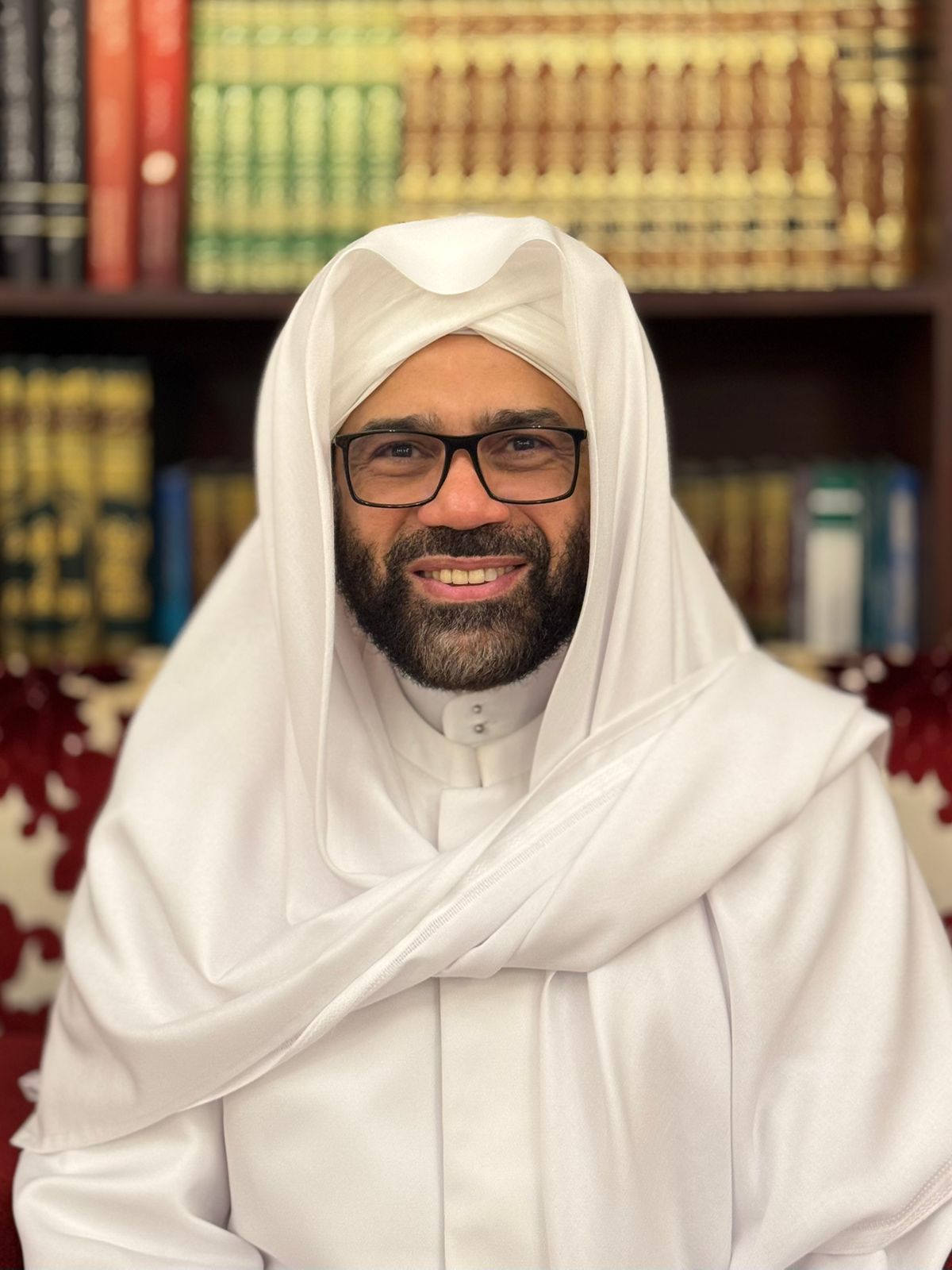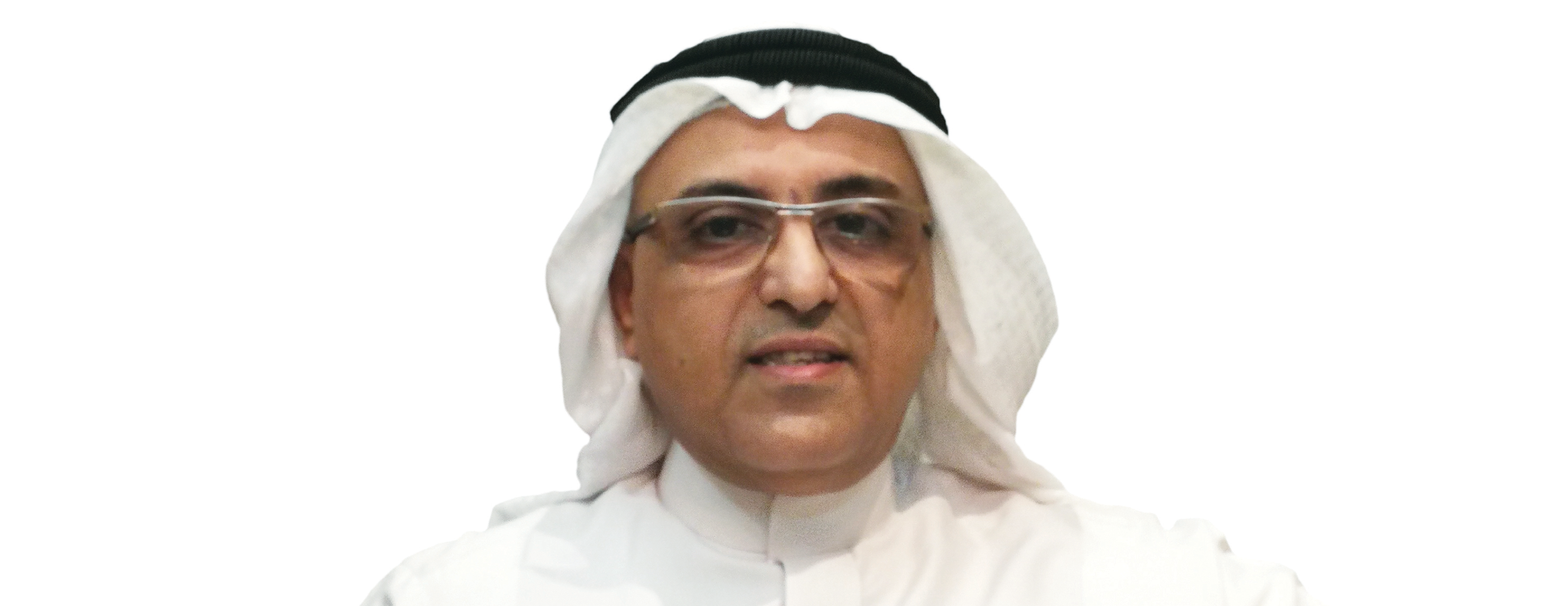Infographic: Inside the corridors of the Holy Haramain Alabaster Pieces
الأربعاء - 12 أبريل 2023
Wed - 12 Apr 2023
Pieces of the rarest kind of alabaster in the world called "Mery Stone" located to the right of the Ka'ba's door on Al-Shadhrwan and that are characterized with their unique yellowish brown color.
Historians say that they were first located on Al-Mu'ejn, which is a lower ground than the rest of the circumambulation terrace, where the angel Gabriel taught the prophet peace be upon him how to pray.
Number of alabaster pieces: 8
The length of the largest piece: 33cm
The width of the largest piece: 21cm
The alabaster pieces were a gift from the Caliph (Abu Ja'far Al-Mansur) to the Holy Mosque during his restoration to the circumambulation terrace in the year 631 AH, the date was inscribed under a blue colored stone beneath one of the alabaster pieces inside Al-Mu'ejn, they remained there until stolen in the year 1213 AH, and were found later among a man's heritance after his death.
The pieces were returned to their initial place in Al-Mu'ejn until 1377 AH, when it was filled up because of people crowding around it and obstructing the movement.
The alabaster pieces were moved to Al-Shadhrwan to the right of the Holy Ka'aba's door opposite to the location of Al- Mu'ejn to indicate to its place.
Translation: Doaa Qaffas
Historians say that they were first located on Al-Mu'ejn, which is a lower ground than the rest of the circumambulation terrace, where the angel Gabriel taught the prophet peace be upon him how to pray.
Number of alabaster pieces: 8
The length of the largest piece: 33cm
The width of the largest piece: 21cm
The alabaster pieces were a gift from the Caliph (Abu Ja'far Al-Mansur) to the Holy Mosque during his restoration to the circumambulation terrace in the year 631 AH, the date was inscribed under a blue colored stone beneath one of the alabaster pieces inside Al-Mu'ejn, they remained there until stolen in the year 1213 AH, and were found later among a man's heritance after his death.
The pieces were returned to their initial place in Al-Mu'ejn until 1377 AH, when it was filled up because of people crowding around it and obstructing the movement.
The alabaster pieces were moved to Al-Shadhrwan to the right of the Holy Ka'aba's door opposite to the location of Al- Mu'ejn to indicate to its place.
Translation: Doaa Qaffas





